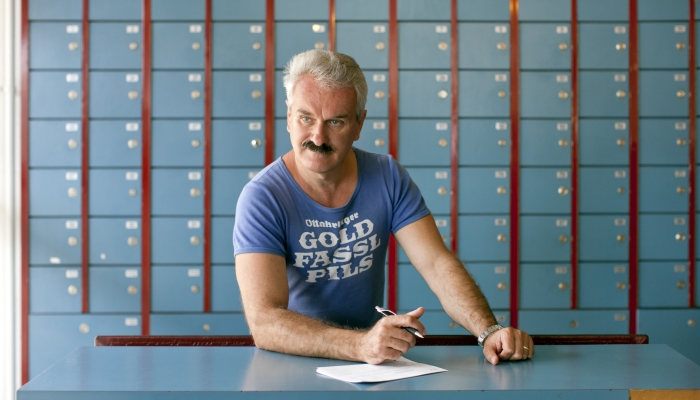Interview: Peter Kerekes & Velvet Terrorist

The acclaimed Slovakian documentary film director Peter Kerekes recently wrapped up shooting his latest film Velvet Terrorist in Croatia. Velvet Terrorist is a Slovakian-Czech-Croatian co-production with Siniša Juričić (producer of award-winning Sofia's Last Ambulance) and Filip Remunda (co-author of Czech Dream) as co-producers.
Peter Kerekes is a Slovakian documentary film director who came into the spotlight with his film Cooking History (Ako sa varia dejiny, 2009), a feature-length documentary about German, Russian, French, Yugoslav and other military chefs during World War II, whose craftsmanship helped cook history. Cooking History won a number of awards at renowned international festivals, including the FIPRESCI Award at DOK Leipzig and Special Jury Award at Hot Docs in Canada. The European Film Academy also nominated it for best documentary film.
His latest film Velvet Terrorist also offers a somewhat different view on history. It tells a story of three men who made an attempt at crushing the communist regime in Czechoslovakia, with varying success. Based on the idea that what marks one political system as terrorism, another will justify, the film also looks at how the discourse on terrorism changes with the political context.
Velvet Terrorist is a Slovakian-Czech-Croatian co-production, produced by Filip Remunda from Czech Republich, co-author of Czech Dream (Ceský sen, 2004) and Siniša Juričić from Croatia, the producer of award-winning Sofia’s Last Ambulance. Both Sofia’s Last Ambulance and Velvet Terrorist are co-funded by the Croatian Audiovisual Centre. The trailer can be seen here.
We made a brief interview with Peter Kerekes when he finished filming in Croatia.
How did you come up with the idea and the protagonists for Velvet Terrorist?
Well, this is a film of three directors: Palo Pekarcik, Ivan Ostrochovsky and me. Palo found the first guy – Fero Bednár – who wanted to assassin the Czechoslovak communist president in the early 80’s. He then continued searching for other people from former Czechoslovakia who were arrested on account of terrorism and found two other guys. One wanted to blow up the communist tribune during a 1st of May Celebration in the 70’s, but the night before the event he got drunk and the police found him with a bag full of stolen dynamite under the tribune. The other one blew up communist billboards.
However, nobody of them killed or harmed anybody, and that is why we called them velvet.
Can you tell us something about the methods you used: will the film be based on interviews, archive footage, recreations of the events…?
We wanted to make a political film, where the protagonists would re-create past events. But during the shooting, as we started to develop a closer relationship with our film heroes, we found out that they planned and did all these acts of terror for love. One had a „Bonnie and Clyde“ relationship, the other one has unhappily fallen in love, so his act of terrorism was a result of a heartsick man, and the third wanted to attract a woman. Cherchez la femme.
The trailer for the film plays with some stereotypes regarding the revolutionary attitudes and beliefs. Is the irony in the film directed towards your protagonists, the system or towards something else?
Our irony is toward everything.
How did you come about working with Siniša Juričić and Nukleus film?
I know Siniša well from his previous work. We had the same Austrian co-producer who was co-producing Siniša’s Cash & Marry (2009), while I was working on Cooking History. When Siniša saw our trailer in Jihlava, he offered us a Croatian co-production. One scene of our movie is taking place in Rovinj, so it made sense to do the project together.
Can you tell us something about filming in Croatia: how long did it last for and what part of the film was made here?
We filmed twice in Croatia. The first time it was during the summer in Rovinj, where we were filming our hero’s memory of a journey he took in 1982. Mr. Bednár decided to get in touch with the CIA. He obtained permission to travel to Yugoslavia for a holiday. He sent a telegram to the Radio Free Europe station addressed to Rudolf Janota in München: In order to achieve our common cause, I am waiting in Rovinj at 9.30 pm, at the Key bar, next door to Jugobanka, every night until August 8. Blue shirt, Gold Fassl Pils. He was waiting there every day for a week, but nobody contacted him…
The second time we were in Croatia was at the beginning of November, when we filmed the billboard explosion scene.
In what phase is Velvet Terrorist at the moment?
Actually, I am in the middle of the editing and I hope we will finish it in spring 2013.
